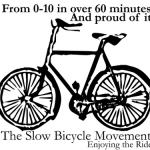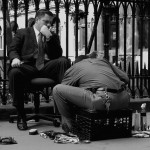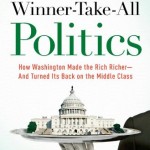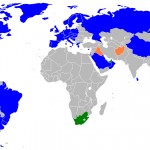 The public has a distorted view of science, because children are taught in school that science is a collection of firmly established truths. In fact, science is not a collection of truths. It is a continuing exploration of mysteries. Read more
The public has a distorted view of science, because children are taught in school that science is a collection of firmly established truths. In fact, science is not a collection of truths. It is a continuing exploration of mysteries. Read more
Tag Archives: politics
Obama supports Wyden-Brown bill
 On the PBS Newshour last night, Judy Woodruff interviewed first Kathleen Sibelius and then Orrin Hatch on the issue (Sibelius being the Secretary of Health And Human Services (HHS) and Hatch the conservative Republican senator from Utah). Woodruff repeatedly tried to confront Hatch’s opposition to the proposal. She would cite a state governor who wanted the flexibility of the 2014 waiver option — for example, someone who thought his state could do better than the federal plan if it offered a single-payer system – only to have Hatch repeat, over and over, that the states can’t afford to implement health care reform, so there’s no point in talking about it. It’s all “bull corn.” Read more
On the PBS Newshour last night, Judy Woodruff interviewed first Kathleen Sibelius and then Orrin Hatch on the issue (Sibelius being the Secretary of Health And Human Services (HHS) and Hatch the conservative Republican senator from Utah). Woodruff repeatedly tried to confront Hatch’s opposition to the proposal. She would cite a state governor who wanted the flexibility of the 2014 waiver option — for example, someone who thought his state could do better than the federal plan if it offered a single-payer system – only to have Hatch repeat, over and over, that the states can’t afford to implement health care reform, so there’s no point in talking about it. It’s all “bull corn.” Read more
Imagine a future without cosmetic surgery
 A less pithy title – and what I really mean – would be “Imagine a future where aesthetic cosmetic surgery wasn’t motivated by the images of celebrities/advertising/porn and by the dissatisfaction with normal bodies that these images create.”
A less pithy title – and what I really mean – would be “Imagine a future where aesthetic cosmetic surgery wasn’t motivated by the images of celebrities/advertising/porn and by the dissatisfaction with normal bodies that these images create.”
In the concluding chapter of her new book, American Plastic: Boob Jobs, Credit Cards, and the Quest for Perfection, Laurie Essig suggests we might try creating and joining reality-check groups before going under the knife. We could weigh our decision, benefit from the input of friends, then relentlessly pursue “perfect beauty at any cost” if we wished. Read more
Union busting and the inequality of wealth
 In principle, every American citizen has an equal say in our political process. In practice, of course, some of us are more equal than others. Billionaires can field armies of lobbyists; they can finance think tanks that put the desired spin on policy issues; they can funnel cash to politicians with sympathetic views (as the Koch brothers did in the case of Mr. Walker). On paper, we’re a one-person-one-vote nation; in reality, we’re more than a bit of an oligarchy, in which a handful of wealthy people dominate. Given this reality, it’s important to have institutions that can act as counterweights to the power of big money. And unions are among the most important of these institutions. Read more
In principle, every American citizen has an equal say in our political process. In practice, of course, some of us are more equal than others. Billionaires can field armies of lobbyists; they can finance think tanks that put the desired spin on policy issues; they can funnel cash to politicians with sympathetic views (as the Koch brothers did in the case of Mr. Walker). On paper, we’re a one-person-one-vote nation; in reality, we’re more than a bit of an oligarchy, in which a handful of wealthy people dominate. Given this reality, it’s important to have institutions that can act as counterweights to the power of big money. And unions are among the most important of these institutions. Read more
Feeling sorry for plastic surgeons
 They meant to be reconstructive surgeons, they meant to fix people after horrific accidents or cancer, and they started doing some boob jobs on the side and it started to eat up more and more of their practice because it was so lucrative. They want to send their kids to nice schools, they have mortgages, they have family, and you could see that they felt a little bit helpless as well. It wasn’t what they meant to do. They seemed just as much products of the system as the middle-aged women going in for a facelift or boob job. They were hoping for a better future.
They meant to be reconstructive surgeons, they meant to fix people after horrific accidents or cancer, and they started doing some boob jobs on the side and it started to eat up more and more of their practice because it was so lucrative. They want to send their kids to nice schools, they have mortgages, they have family, and you could see that they felt a little bit helpless as well. It wasn’t what they meant to do. They seemed just as much products of the system as the middle-aged women going in for a facelift or boob job. They were hoping for a better future.
Read more
The states’ rights argument against health care: An ugly tradition
 “Opponents of health care reform are not really seeking to vindicate the power of states to regulate health care. Rather, they are counting on the fact that if they succeed with this legal gambit, the powerful interests arrayed against health care reform—the insurance industry, doctors, and drug companies—will easily overwhelm any efforts at meaningful reform in most states. Unless the Supreme Court is willing to rewrite hundreds of years of jurisprudence, however, they will not succeed.” Read more
“Opponents of health care reform are not really seeking to vindicate the power of states to regulate health care. Rather, they are counting on the fact that if they succeed with this legal gambit, the powerful interests arrayed against health care reform—the insurance industry, doctors, and drug companies—will easily overwhelm any efforts at meaningful reform in most states. Unless the Supreme Court is willing to rewrite hundreds of years of jurisprudence, however, they will not succeed.” Read more
Constitutional law will trump politics on health care reform
 “Since the New Deal, the court has consistently held that Congress has broad constitutional power to regulate interstate commerce. This includes authority over not just goods moving across state lines, but also the economic choices of individuals within states that have significant effects on interstate markets. By that standard, this law’s constitutionality is open and shut. Does anyone doubt that the multitrillion-dollar health insurance industry is an interstate market that Congress has the power to regulate?” Read more
“Since the New Deal, the court has consistently held that Congress has broad constitutional power to regulate interstate commerce. This includes authority over not just goods moving across state lines, but also the economic choices of individuals within states that have significant effects on interstate markets. By that standard, this law’s constitutionality is open and shut. Does anyone doubt that the multitrillion-dollar health insurance industry is an interstate market that Congress has the power to regulate?” Read more
Inequality and the financial crisis
 “Inequality has been getting worse. … One thing that this has done is it has encouraged governments, who are aware of the resentment caused by the rising inequality, to try to take some kind of steps to make it more politically acceptable.” Rajan has a chapter called ‘Let them eat credit’. “The US in particular has stimulated the housing market, it has subsidised lending to people, which drove up home prices in an unsustainable way.” Read more
“Inequality has been getting worse. … One thing that this has done is it has encouraged governments, who are aware of the resentment caused by the rising inequality, to try to take some kind of steps to make it more politically acceptable.” Rajan has a chapter called ‘Let them eat credit’. “The US in particular has stimulated the housing market, it has subsidised lending to people, which drove up home prices in an unsustainable way.” Read more
Guest post: A fat lot of good
 This delightful person, who signed off with “Yours fatly,” is a woman after my own heart. Her wise words took me back to a holiday in France, where the supermarkets were filled with full, fat, soft, unpasteurized cheeses, divine pastries, calorie and fat-laden crème fraiche and whole aisles of wine. I looked for low fat products and found one tiny, slender end-of-aisle display, where a small coterie of non-Europeans searched for fat-free yogurt and pre-packaged egg whites. Read more
This delightful person, who signed off with “Yours fatly,” is a woman after my own heart. Her wise words took me back to a holiday in France, where the supermarkets were filled with full, fat, soft, unpasteurized cheeses, divine pastries, calorie and fat-laden crème fraiche and whole aisles of wine. I looked for low fat products and found one tiny, slender end-of-aisle display, where a small coterie of non-Europeans searched for fat-free yogurt and pre-packaged egg whites. Read more
The up side of health care repeal
 A repeal or strike-down of Obamacare would likely lead to the US doing nothing for a few more years, then the system hits the point of complete crisis, and then there’s enough support for actual healthcare reform along the Medicare for all lines. Read more
A repeal or strike-down of Obamacare would likely lead to the US doing nothing for a few more years, then the system hits the point of complete crisis, and then there’s enough support for actual healthcare reform along the Medicare for all lines. Read more
Act now to prevent the economic meltdown of medicine
 The widespread assumption that we should blame personal lifestyles for our health problems allows corporations and the governments who fail to regulate them off the hook. It’s not politically or economically comfortable to acknowledge the underlying causes of disease — poverty, inequality, air and water pollution, contaminated food, unsafe working conditions, an obesegenic environment — and take responsibility for them. Read more
The widespread assumption that we should blame personal lifestyles for our health problems allows corporations and the governments who fail to regulate them off the hook. It’s not politically or economically comfortable to acknowledge the underlying causes of disease — poverty, inequality, air and water pollution, contaminated food, unsafe working conditions, an obesegenic environment — and take responsibility for them. Read more
Fla judge rules against health care bill (& broccoli)
 A conservative federal judge in a conservative area of the conservative state of Florida ruled today on the health care reform act. Not only did he rule that the individual mandate – the requirement that everyone have insurance – was unconstitutional, which was expected. He declared the entire bill unconstitutional. Read more
A conservative federal judge in a conservative area of the conservative state of Florida ruled today on the health care reform act. Not only did he rule that the individual mandate – the requirement that everyone have insurance – was unconstitutional, which was expected. He declared the entire bill unconstitutional. Read more
Czech doctors resign in protest
 The average monthly wage in Czechoslovakia is about $1200. Newly graduated doctors earn just over $866 a month. According to oncologist Peter Papp, whose salary has never broken the 20,000 koruna ($1,051) threshold, “My friends include a tinsmith, a cook. When we go out, they pay my bill. They say: ‘You are only a doctor.’ “ He earns 88 koruna an hour, or 2 koruna less than when he had a job labeling frozen chickens in his student days. Read more
The average monthly wage in Czechoslovakia is about $1200. Newly graduated doctors earn just over $866 a month. According to oncologist Peter Papp, whose salary has never broken the 20,000 koruna ($1,051) threshold, “My friends include a tinsmith, a cook. When we go out, they pay my bill. They say: ‘You are only a doctor.’ “ He earns 88 koruna an hour, or 2 koruna less than when he had a job labeling frozen chickens in his student days. Read more
The future of advertising unhealthy products
 There’ll be many products we’ll be allowed to buy but not see advertised – the things the government will decide we shouldn’t be consuming because of their impact on healthcare costs or the environment but that they can’t muster the political will to ban outright. Read more
There’ll be many products we’ll be allowed to buy but not see advertised – the things the government will decide we shouldn’t be consuming because of their impact on healthcare costs or the environment but that they can’t muster the political will to ban outright. Read more
Health care, climate change, and the myth of the free market
 Even supposedly serious economists lend support to these views, arguing that the dysfunctional health-care industry is best left to its own devices. … This is what comes of forgetting the critical role that states have played in nurturing, protecting, and financing their industries, as well as in taxing and taming them. The greatest danger that Western prosperity now faces isn’t posed by any Beijing consensus; it’s posed by the myth of the free market. Read more
Even supposedly serious economists lend support to these views, arguing that the dysfunctional health-care industry is best left to its own devices. … This is what comes of forgetting the critical role that states have played in nurturing, protecting, and financing their industries, as well as in taxing and taming them. The greatest danger that Western prosperity now faces isn’t posed by any Beijing consensus; it’s posed by the myth of the free market. Read more
Health care in America: You get what you deserve
 More than most societies, Americans believe that people rise or fall as a result of their own efforts, and therefore get what they deserve. Critically, when we say this is a nation of individualists, we don’t just mean Americans embrace individualism as a social ethic. Underpinning this ethic is tendency to interpret the world in highly individualistic terms. We distribute blame and praise to individuals because we believe that it is their individual actions, for better or worse, that matter. People get what they deserve. Read more
More than most societies, Americans believe that people rise or fall as a result of their own efforts, and therefore get what they deserve. Critically, when we say this is a nation of individualists, we don’t just mean Americans embrace individualism as a social ethic. Underpinning this ethic is tendency to interpret the world in highly individualistic terms. We distribute blame and praise to individuals because we believe that it is their individual actions, for better or worse, that matter. People get what they deserve. Read more
WikiLeaks and modern medicine
 [The 1971 Supreme Court decision on the Pentagon Papers] established the principle that it was illegal to leak secrets, but not to publish leaks. … The legal bargain from 1971 simply does not and cannot produce the outcome it used to. This is one of the things freaking people in the US government out — not that the law has changed, but that the world has, and the industrial era law, applied to internet-era publishing, might allow for media outlets which exhibit no self-restraint around national sensitivities, because they are run by people without any loyalty to — or, more importantly, need of — national affiliation to do their jobs. Read more
[The 1971 Supreme Court decision on the Pentagon Papers] established the principle that it was illegal to leak secrets, but not to publish leaks. … The legal bargain from 1971 simply does not and cannot produce the outcome it used to. This is one of the things freaking people in the US government out — not that the law has changed, but that the world has, and the industrial era law, applied to internet-era publishing, might allow for media outlets which exhibit no self-restraint around national sensitivities, because they are run by people without any loyalty to — or, more importantly, need of — national affiliation to do their jobs. Read more
Income inequality and American politics
 US income inequality is not — or not simply – due to the economic consequences of globalization, like the shift from manufacturing jobs to service sector jobs, with the ensuing loss of pay and benefits. It’s also due to what’s happened in American politics. Business interests — represented by Republicans — have been much better at organizing themselves than have labor unions and interest groups that represent the middle class. And the cost of campaigning – which increased enormously once TV became the dominant campaign medium – has made Democrats willing to support legislation that favors the interests of those with money to spare. Read more
US income inequality is not — or not simply – due to the economic consequences of globalization, like the shift from manufacturing jobs to service sector jobs, with the ensuing loss of pay and benefits. It’s also due to what’s happened in American politics. Business interests — represented by Republicans — have been much better at organizing themselves than have labor unions and interest groups that represent the middle class. And the cost of campaigning – which increased enormously once TV became the dominant campaign medium – has made Democrats willing to support legislation that favors the interests of those with money to spare. Read more
The problem is you
 Any theory that claims to tell us who and what we are contains a potential for abuse. Advice from “legitimate” sources, addressing itself to areas of human weakness and vulnerability, can deprive an individual of the confidence that he could know for himself who he should be. Religion used to have this potential on a wide scale when the population was less educated, less self-conscious, less “sophisticated.” Organized religion still has the advantage of being able to hide behind a veil of crossed intentions and a choirboy squeaky-clean. But any closed system of thought can gain ascendancy using perfected psychological, that is, commercial, techniques. Read more
Any theory that claims to tell us who and what we are contains a potential for abuse. Advice from “legitimate” sources, addressing itself to areas of human weakness and vulnerability, can deprive an individual of the confidence that he could know for himself who he should be. Religion used to have this potential on a wide scale when the population was less educated, less self-conscious, less “sophisticated.” Organized religion still has the advantage of being able to hide behind a veil of crossed intentions and a choirboy squeaky-clean. But any closed system of thought can gain ascendancy using perfected psychological, that is, commercial, techniques. Read more
Wikileaks, nerd supremacy, anarchy, dictatorship, and democracy
 The flip side of responsibly held secrets … is trust. A perfectly open world, without secrets, would be a world without the need for trust, and therefore a world without trust. What a sad sterile place that would be: A perfect world for machines. Read more
The flip side of responsibly held secrets … is trust. A perfectly open world, without secrets, would be a world without the need for trust, and therefore a world without trust. What a sad sterile place that would be: A perfect world for machines. Read more
Why the US doesn’t have universal health care
 Most high-income countries today have some form of national health insurance. Why is the US different? What stands in the way? … How to explain American opposition to universal health care. “Nearly every time this country has expanded its social safety net or tried to guarantee civil rights, passionate opposition has followed.” Read more
Most high-income countries today have some form of national health insurance. Why is the US different? What stands in the way? … How to explain American opposition to universal health care. “Nearly every time this country has expanded its social safety net or tried to guarantee civil rights, passionate opposition has followed.” Read more
Carbs are the new no-no
 To see doctors and nutritionists give voice to so much common sense is truly encouraging. Actually, most of them have been saying something like this all along. Their message to eat a balanced diet just wasn’t titillating enough to get the press coverage it deserved. Read more
To see doctors and nutritionists give voice to so much common sense is truly encouraging. Actually, most of them have been saying something like this all along. Their message to eat a balanced diet just wasn’t titillating enough to get the press coverage it deserved. Read more
The day Neda Soltan died: Inside an Iranian hospital
 I tried to explain that my colleagues and I needed to know the cause of the accidents and the nature of the trauma. Then a bearded tall man approached me “ask me!” he said. I immediately recognised the “plainclothes”. “I wanted to know”, I began. He locked his intense hatred into my eyes. “You have no right to ask any question. At least if you don’t want to join them.” And he pointed to the line of the victims lying on the beds and on the floor. Read more
I tried to explain that my colleagues and I needed to know the cause of the accidents and the nature of the trauma. Then a bearded tall man approached me “ask me!” he said. I immediately recognised the “plainclothes”. “I wanted to know”, I began. He locked his intense hatred into my eyes. “You have no right to ask any question. At least if you don’t want to join them.” And he pointed to the line of the victims lying on the beds and on the floor. Read more
Professionalism of UK doctors questioned over health inequalities
 Where was the medical profession? Doctors are supposed to feel an acute responsibility to deliver the best health service to the whole population. It is on this basis that they ask the public and government to support generous pay increases and terms and conditions of service. These attitudes and behaviours are what we commonly mean by professionalism. It seems that doctors failed completely to live up to the rhetoric of their commitment to professional values. Read more
Where was the medical profession? Doctors are supposed to feel an acute responsibility to deliver the best health service to the whole population. It is on this basis that they ask the public and government to support generous pay increases and terms and conditions of service. These attitudes and behaviours are what we commonly mean by professionalism. It seems that doctors failed completely to live up to the rhetoric of their commitment to professional values. Read more
Life expectancy of the rich and the poor
 While average life expectancy is indeed rising, it’s doing so mainly for high earners, precisely the people who need Social Security least. Life expectancy in the bottom half of the income distribution has barely inched up over the past three decades. So the Bowles-Simpson proposal is basically saying that janitors should be forced to work longer because these days corporate lawyers live to a ripe old age. Read more
While average life expectancy is indeed rising, it’s doing so mainly for high earners, precisely the people who need Social Security least. Life expectancy in the bottom half of the income distribution has barely inched up over the past three decades. So the Bowles-Simpson proposal is basically saying that janitors should be forced to work longer because these days corporate lawyers live to a ripe old age. Read more
The post-midterm world
 Conservatives will not find it much easier than liberals to govern a society where so many people feel themselves cheated — and where so many refuse to believe that the so-called experts care for the interests of anyone beyond their narrow coterie and class. Read more
Conservatives will not find it much easier than liberals to govern a society where so many people feel themselves cheated — and where so many refuse to believe that the so-called experts care for the interests of anyone beyond their narrow coterie and class. Read more
Do gruesome graphics deter or promote smoking?
 Bangladeshi chest doctor Kazi Saifuddin Bennoor has seen many misleading cigarette advertisements, but the one that suggested smoking could make childbirth easier plumbed new depths. … “[I]f a lady smokes, her baby will be smaller and it will be easier to deliver, the labour will be less painful“. Read more
Bangladeshi chest doctor Kazi Saifuddin Bennoor has seen many misleading cigarette advertisements, but the one that suggested smoking could make childbirth easier plumbed new depths. … “[I]f a lady smokes, her baby will be smaller and it will be easier to deliver, the labour will be less painful“. Read more
Tony Judt lives on
 It might be thought the height of poor taste to ascribe good fortune to a healthy man with a young family struck down at the age of sixty by an incurable degenerative disorder from which he must shortly die. But there is more than one sort of luck. To fall prey to a motor neuron disease is surely to have offended the Gods at some point, and there is nothing more to be said. But if you must suffer thus, better to have a well-stocked head. Read more
It might be thought the height of poor taste to ascribe good fortune to a healthy man with a young family struck down at the age of sixty by an incurable degenerative disorder from which he must shortly die. But there is more than one sort of luck. To fall prey to a motor neuron disease is surely to have offended the Gods at some point, and there is nothing more to be said. But if you must suffer thus, better to have a well-stocked head. Read more
Healthy lifestyles serve political interests
 Ultimately, decisions about a country’s health are not a matter of science, medicine, research, or scholarship. They are essentially political choices. When the US leans right, the solution to the health care crisis is to emphasize personal responsibility (aka prevention through healthy lifestyles). When the country leans left, there’s increased interest in the “negative externalities” of advanced market capitalism (pollution, climate change, ethnic inequities). Neither one is exclusively right or wrong. But when the political climate puts the spotlight on patients who are guilty of unhealthy lifestyles, the focus goes dim on those “fundamental mechanisms leading to disease” that have nothing to do with lifestyle. We lose sight of the genuine solutions that an increased focus on those mechanisms could provide. Read more
Ultimately, decisions about a country’s health are not a matter of science, medicine, research, or scholarship. They are essentially political choices. When the US leans right, the solution to the health care crisis is to emphasize personal responsibility (aka prevention through healthy lifestyles). When the country leans left, there’s increased interest in the “negative externalities” of advanced market capitalism (pollution, climate change, ethnic inequities). Neither one is exclusively right or wrong. But when the political climate puts the spotlight on patients who are guilty of unhealthy lifestyles, the focus goes dim on those “fundamental mechanisms leading to disease” that have nothing to do with lifestyle. We lose sight of the genuine solutions that an increased focus on those mechanisms could provide. Read more
Water privatization in South Africa: Victory and reversal
 Here then, we have the highest court in the land saying that those poor people with pre-paid water meters must not think that their water supply has discontinued when their taps run dry because the meter has cut the supply … they must imagine that it is “temporarily suspended” until such time as they can find the money to buy more water credit or until the next month arrives. Such “logic” … is … an insult both to the poor and to the constitutional imperatives of justice and equality. Read more
Here then, we have the highest court in the land saying that those poor people with pre-paid water meters must not think that their water supply has discontinued when their taps run dry because the meter has cut the supply … they must imagine that it is “temporarily suspended” until such time as they can find the money to buy more water credit or until the next month arrives. Such “logic” … is … an insult both to the poor and to the constitutional imperatives of justice and equality. Read more

